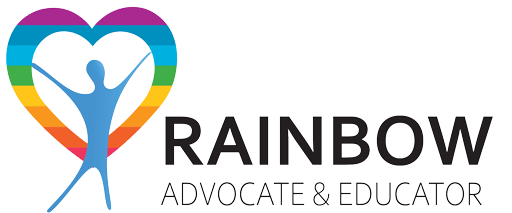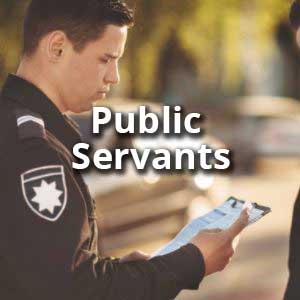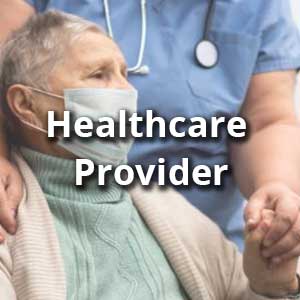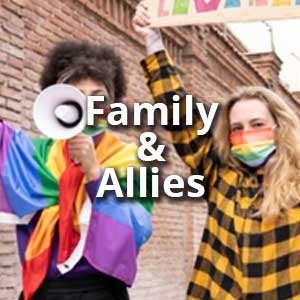Course Description
The second module of the Rainbow Advocate Certification Program is clinical in its design and its content, presented to provide licensed mental health professionals with advanced, in-depth training regarding working with LGBTQIA2+ clients, partners, and families. Participants will examine current research and common challenges that may present in clients: internalized homophobia, toxic shame, coming out in an unsupportive environment, and affirming gender identity through transition. Participants will learn guidelines for providing assessments, and learn how to develop methods of treatment particular to the needs of the LGBTQIA2+ community. Through interactive exercises and case study examination, participants will gain necessary tools for providing affirming, respectful, quality care for this population. Ethical concerns that commonly arise when treating this population will also be evaluated and addressed.
Facilitators

 Robert Hudson, Clinical Director and Founder of The Hudson Centre – A UKCP registered psychotherapist, Robert specializes in Sex Addiction therapy and recovery. A certified Sex Addiction & Trauma Specialist and CSAT-S Supervisor, he is a registered member of the British Association of Counselling and Psychotherapy (MBACP) and an accredited member of the College of Sexual and Relationship Therapy (COSRT) as well as a Member of the International Institute for Sexual Medicine (ISSM). Robert’s professional experience includes working with men and women in private practice. He works with individuals, couples (both same sex and heterosexual couples) and groups. Robert is an integrative psychotherapist who draws on humanistic, psychoanalytic/psychodynamic and cognitive behavioral models. He respects his client’s best interests when providing therapy and undertakes to respect his client’s autonomy. Robert actively considers issues of diversity, sexuality and equality as these affect all aspects of his work.
Robert Hudson, Clinical Director and Founder of The Hudson Centre – A UKCP registered psychotherapist, Robert specializes in Sex Addiction therapy and recovery. A certified Sex Addiction & Trauma Specialist and CSAT-S Supervisor, he is a registered member of the British Association of Counselling and Psychotherapy (MBACP) and an accredited member of the College of Sexual and Relationship Therapy (COSRT) as well as a Member of the International Institute for Sexual Medicine (ISSM). Robert’s professional experience includes working with men and women in private practice. He works with individuals, couples (both same sex and heterosexual couples) and groups. Robert is an integrative psychotherapist who draws on humanistic, psychoanalytic/psychodynamic and cognitive behavioral models. He respects his client’s best interests when providing therapy and undertakes to respect his client’s autonomy. Robert actively considers issues of diversity, sexuality and equality as these affect all aspects of his work.
 Mellissa McCracken is a devoted trauma focused substance abuse counselor and certified addictions professional (CCAPP/IITAP), toting extensive experience in substance abuse treatment, program management, group facilitation and individual counseling. They are a person comfortable working in an environment with diverse, multi-cultural and socio-economic issues; specifically with persons in marginalized communities. Mellissa is actively involved in community outreach and educational programming, including working closely with LGBT centers nation wide to address methamphetamine abuse in the LGBTQIA+ community.
Mellissa McCracken is a devoted trauma focused substance abuse counselor and certified addictions professional (CCAPP/IITAP), toting extensive experience in substance abuse treatment, program management, group facilitation and individual counseling. They are a person comfortable working in an environment with diverse, multi-cultural and socio-economic issues; specifically with persons in marginalized communities. Mellissa is actively involved in community outreach and educational programming, including working closely with LGBT centers nation wide to address methamphetamine abuse in the LGBTQIA+ community.
Learning Objectives
Upon completion of RACS Module 2, candidates will be able to:
- Recognize signs of concern in clients that may arise around their sexuality and/or their gender identity.
- Design a plan for navigating coming out in an unsupportive environment with a regard to religious beliefs and influence.
- Evaluate research on Rapid Onset Gender Dysphoria and the surrounding controversy.
- Provide general sex education resource alternatives that do not include pornography.
- Measure the prevalence and sources of internalized homophobia and how it affects relationship quality.
- Analyze co-occurring eating disorders and body dysmorphia and how it may present within the subsets of the LGBTQIA2+ community.
- Determine ethical treatment methods for dealing with unwanted same sex attraction.
- Identify the difference in treatment considerations for clients who cross-dressing and clients who display signs of fetishism.
- Determine proper responses to managing situations that may arise in therapy sessions.
- Apply the Internal Family Systems model lens to help understand gender identity and sexual orientation.
- Integrate knowledge from working with case examples into creating a plan to implement shame reduction.
- Evaluate the concerns that come with transitioning as a minor, political gatekeeping, and “de-transitioning”.
- Interpret the requirements for a medical transition for transgender clients, and have a resource of the necessary practitioners.
- Discuss the journey to equality for marriage rights, adoption and parenting rights, and advanced care directives and planning.
- Develop a strategy for creating boundaries to protect the rights of your client at home, school, and work.
- Illustrate the harm and mental distress that comes from practice that includes gender reparative or “conversion” therapy.
- Evaluate the types of attachment styles, positive and negative, and how they present within the subsets within the LGBTQIA2+ population.
- Integrate methods of increasing resilience and empowerment for clients.
- Propose screening tools and assessments, such as the ECR and the PTSI-R, to aid in providing therapy to marginalized clients.
- Develop methods of treatment specific to each client through the use of experientials and exercises.
- Apply a model of ethical decision making and implement practice solving ethical dilemma scenarios using this model.
Main Topics
1. Sexual Orientation and Coming Out
a. Understanding sexual fluidity
b. Coming out in an unsupportive environment or religious experience
c. Dealing with “unwanted same-sex attraction” and clients that request conversion therapy
d. Recognizing and addressing internalized homophobia
2. Gender Identity and Transitioning
a. Coming out as transgender or gender non-binary
b. The process of transitioning
c. Medical healthcare challenges on a clinical level
d. The impact of resources for medical treatment and legal services
e. Understand the implications of Rapid Onset Gender Dysphoria
f. Clinical and Medical Implications of De-transitioning
3. Clinical Considerations
a. Signs of distress in LGBTQIA2+ clients: self-harm/ suicide, addiction / chemsex, and other co-occurring
mental health disorders, eating disorders and body dysmorphia
b. Approaches to shame reduction
c. Using assessments or screening tools to assess trauma
d. Types of attachment styles, positive and negative
e. Creating resilience
Target Audience
Licensed and Intern Mental Health Professionals who have completed Module 1 | Rainbow Advocate and Educator training.
Instructional Level
INTERMEDIATE –You must be a licensed mental health practitioner or registered intern eligible for license in your state. All international applicants must be eligible to practice psychotherapy according to the rules and regulations of your specific country. You must have completed RAE Module 1 prior to registering for Module 2.
Registration Fee:
Cancellation Policy
For a full refund, a written cancellation notice must be received by IITAP no later than 30 days prior to the scheduled event. Cancellations received less than 30 days prior to the scheduled event will be refunded less a $300 cancellation fee. No refund will be given as of the first day of the scheduled event. Allow 6 weeks for refund.
CE Hours and Accrediting Institutions
(21) CE Hours
- The International Institute for Trauma & Addiction Professionals (IITAP) is approved by the American Psychological Association to sponsor continuing education for psychologists. IITAP maintains responsibility for this program and its content. Training is Live-Online Interactive for 21 Credit Hours.
- This course has been approved by the International Institute for Trauma & Addiction Professionals (IITAP, LLC), as a NAADAC Approved Education Provider, for educational credits. NAADAC Provider #92253. IITAP is responsible for all aspects of the program. Training is Live-Online Interactive for 21 contact hours.
- Course meets the qualifications for 21 hours of continuing education credit for LMFTs, LCSWs, LPCCs, and/or LEPs as required by the California Board of Behavioral Sciences; and International Institute for Trauma & Addiction Professionals (IITAP, LLC), Provider # 135430 is approved by the California Association of Marriage and Family Therapists to sponsor continuing education for LMFT’s, LCSW’s, LPCC’s and LEP’s. IITAP maintains responsibility for the program and all its content. Training is Live-Online Interactive.
- International Institute for Trauma & Addiction Professionals (IITAP, LLC) is recognized by the New York State Education Department’s State Board for Social Work as an approved provider of continuing education for licensed social workers #SW-0224. Training is Live-Online Interactive for 21 contact hours.
- International Institute for Trauma & Addiction Professionals (IITAP, LLC) is recognized by the New York State Education Department’s State Board for Mental Health Practitioners as an approved provider of continuing education for licensed marriage and family therapists. #MFT-0031.Training is Live-Online Interactive for 21 contact hours.
- International Institute for Trauma & Addiction Professionals (IITAP, LLC) is recognized by the New York State Education Department’s State Board for Mental Health Practitioners as an approved provider of continuing education for licensed mental health counselors. #MHC-0060. Training is Live-Online Interactive for 21 contact hours.
- International Institute for Trauma & Addiction Professionals (IITAP, LLC) is an NBCC-Approved Continuing Education Provider (ACEP™) and may offer NBCC-approved clock hours for events that meet NBCC requirements. IITAP is solely responsible for all aspects of the program. This program qualifies for 21 Live-Online Interactive Clock Hours as approved by NBCC Provider #6251.
- International Institute for Trauma & Addiction Professionals (IITAP, LLC) is approved by the Canadian Addiction Counsellors Federation (CACCF) to award 21 CEUs upon completion of attending this training
Certificate of Completion
Course completion certificates for in-person trainings are provided to attendees at the conclusion of the training. Certificates for online trainings are uploaded to member IITAP accounts within two weeks of the conclusion of the training or emailed to non-members, if applicable.
Additional Information
- Faculty conflict of interest statements can be found by clicking the the faculty members image. Click to view our faculty members’ webpage.
- Click to view our Grievance Procedures
- Click to view our Accessibility Statement
- For additional assistance or information please contact our office at Ph. 480-575-6853 or email [email protected]






